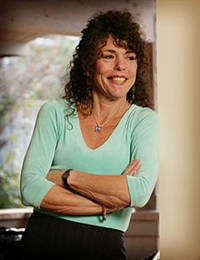EP13 Invited Address 08 – Guerrilla Divorce Busting: Working with Couples in the Trenches – Michele Weiner-Davis, MSW, LCSW
- Average Rating:
- Not yet rated
- Topic Areas:
- Couples Therapy | Invited Addresses | Psychotherapy | Strategic Therapy | Marriage | Relationships
- Categories:
- Evolution of Psychotherapy | Evolution of Psychotherapy 2013 | Pioneers in Couples and Family Therapy
- Faculty:
- Michele Weiner-Davis, LCSW
- Duration:
- 59:12
- Format:
- Audio Only
- Original Program Date:
- Dec 14, 2013
- License:
- Never Expires.
Description
Description: Many couples arrive in therapy feeling worn down, certain that nothing can change. This presentation explores how therapists can intervene at such moments to restore hope and possibility. Drawing from her “Divorce Busting” model, Weiner-Davis shares strategies for challenging resignation, addressing the walkaway wife dynamic, and encouraging proactive support for relationships—both in therapy and beyond.
Moderator: Annellen Simpkins, PhD
Syllabus Description: By the time most couples seek therapy, they’ve been dealing with relationship problems for years. Many are convinced that nothing can change; they are hopeless. How we respond at these pivotal moments has a profound effect on the ways in which people view themselves, and the viability of their marriages.
Educational Objectives:
- List three underlying assumptions of the Divorce Busting approach.
- List one reason why instilling hope is important.
- Explain how our biases affect outcome.
*Sessions may be edited for content and to preserve confidentiality*
Credits
Handouts
| Timestamped Transcript (768.3 KB) | 16 Pages | Available after Purchase |
| Ericksonian Learning Snapshot (249.4 KB) | 2 Pages | Available after Purchase |
Faculty

Michele Weiner-Davis, LCSW Related Seminars and Products
Michele Weiner-Davis, LCSW is the Founder of The Divorce Busting Center in Boulder, Colorado. She is a popular TEDx speaker and the author of eight books including, Healing From Infidelity, and the bestselling Divorce Busting and The Sex-Starved Marriage. She is the recipient of several prestigious awards including the Outstanding Contribution to Marriage and Family Therapy Award from AAMFT.


